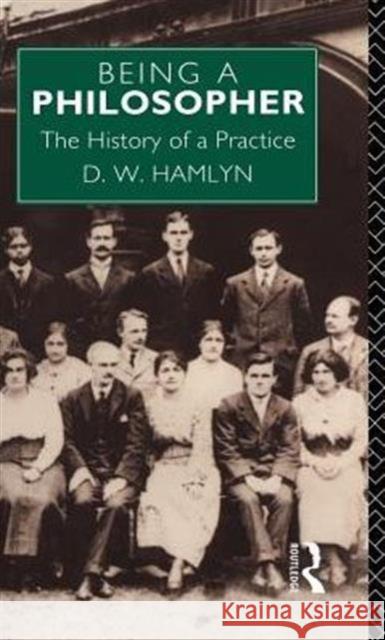Being a Philosopher: The History of a Practice » książka
Being a Philosopher: The History of a Practice
ISBN-13: 9780415029681 / Angielski / Twarda / 1992 / 198 str.
Being a Philosopher: The History of a Practice
ISBN-13: 9780415029681 / Angielski / Twarda / 1992 / 198 str.
(netto: 676,35 VAT: 5%)
Najniższa cena z 30 dni: 654,86
ok. 22 dni roboczych.
Darmowa dostawa!
Philosophers often find that the response I am a philosopher when given in reply to the question What do you do? produces a puzzled silence. The puzzle is not one simply about the nature of philosophical thought, it is one about what philosophers actually do. David Hamlyn's account considers the history of the practice of philosophy or of philosophy considered as an institution. Being a Philosopher examines the main trends of that practice and how philosophers have been regarded at different times. The Greek philosophical schools provided the first professional philosophers. While philosophy played a significant role in the setting up of universities in the Middle Ages, it was, nonetheless severely limited by its subservience to theology. Thebook also considers the great philosophers of the 17th and 18th centuries, exploring the issue of why so few had anything to do with teaching or any other institutional arrangements. The latter part of the book outlines the progressive professionalism of philosophy, the emergence of philosophical journals and societies, and current arrangements for the practice of philosophy in higher education.











